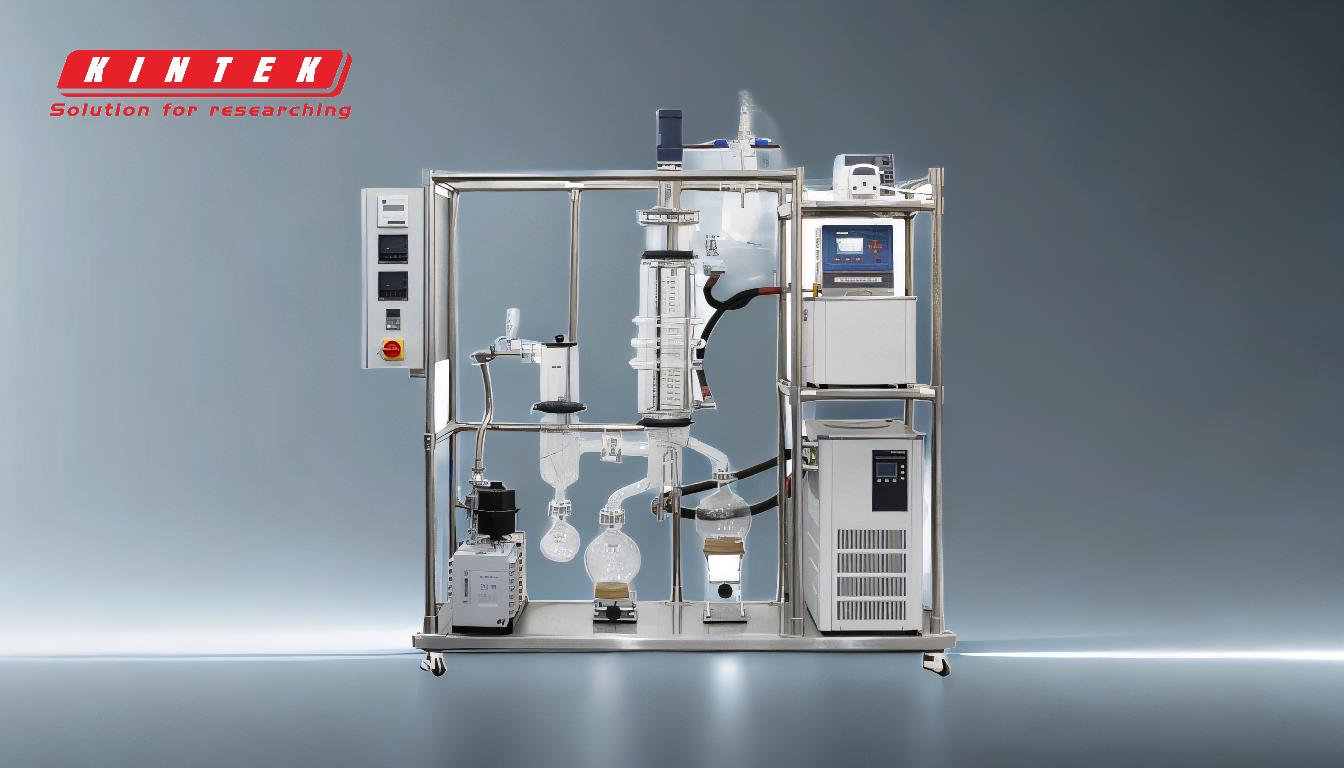Vacuum distillation offers significant advantages over normal distillation, particularly for sensitive compounds and industrial applications. By reducing pressure, vacuum distillation lowers the boiling points of compounds, enabling distillation at lower temperatures. This minimizes the risk of thermal degradation, ensuring high-purity products and preventing damage to heat-sensitive materials. Additionally, vacuum distillation is cost-effective, enhances separation efficiency, and allows for scalability, making it suitable for both small-scale and industrial applications.
Key Points Explained:

-
Lower Boiling Points and Reduced Thermal Degradation
- Vacuum distillation reduces the pressure inside the system, which directly lowers the boiling points of compounds.
- This allows distillation to occur at much lower temperatures compared to normal distillation.
- Lower temperatures are crucial for heat-sensitive compounds, such as cannabinoids (e.g., THC), terpenes, and other organic materials, which may degrade, polymerize, or combust at higher temperatures.
- The result is a high-purity distillate without compromising the integrity of the valuable compounds.
-
Enhanced Safety for Sensitive Compounds
- By operating at lower temperatures, vacuum distillation minimizes the risk of adverse reactions, such as oxidation or thermal decomposition.
- This is particularly important for organic compounds and volatile substances that are prone to degradation or combustion under high heat.
- The process ensures a safer working environment and preserves the chemical structure of the target compounds.
-
Improved Purity and Yield
- The reduced pressure in vacuum distillation prevents contamination and ensures a cleaner separation of compounds.
- It is especially effective for separating close-boiling mixtures, which are challenging to isolate using normal distillation.
- The process results in higher yields and purer end products, making it ideal for industries requiring precision, such as pharmaceuticals, cannabis, and essential oil production.
-
Cost-Effectiveness and Scalability
- Vacuum distillation systems are often more cost-effective than other advanced separation methods.
- On an industrial scale, vacuum distillation can reduce the capital costs of distillation columns by decreasing their height and diameter, as fewer equilibrium stages are required.
- While operating costs may be slightly higher due to the need for vacuum pumps, the overall efficiency and increased capacity justify the investment.
- The process is scalable, making it suitable for both small-scale laboratory setups (e.g., mini rotary evaporators) and large-scale industrial applications.
-
Flexibility and Efficiency
- Vacuum distillation systems are highly adaptable and can be easily modified to suit specific needs.
- The process enhances the efficiency of evaporation and separation, reducing the mean residence time and further minimizing the risk of product degradation.
- This flexibility makes it a preferred method for industries requiring precise control over distillation parameters.
-
Industrial Advantages
- In industrial settings, vacuum distillation offers additional benefits, such as preventing polymer formation and reducing tower bottoms temperatures.
- It increases the capacity of distillation columns, improves yield, and ensures higher product purity.
- These advantages make it a valuable technique for large-scale production, particularly in industries like petrochemicals, food processing, and specialty chemicals.
In summary, vacuum distillation provides a safer, more efficient, and cost-effective alternative to normal distillation, especially when dealing with sensitive or complex mixtures. Its ability to operate at lower temperatures, preserve product integrity, and enhance purity makes it a superior choice for both laboratory and industrial applications.
Summary Table:
| Advantage | Description |
|---|---|
| Lower Boiling Points | Reduces pressure, enabling distillation at lower temperatures to prevent degradation. |
| Enhanced Safety | Minimizes risks of oxidation, thermal decomposition, and combustion. |
| Improved Purity and Yield | Ensures cleaner separation of compounds, ideal for precision industries. |
| Cost-Effectiveness and Scalability | Reduces capital costs and is scalable for lab and industrial applications. |
| Flexibility and Efficiency | Adaptable systems with precise control over distillation parameters. |
| Industrial Advantages | Prevents polymer formation, increases capacity, and ensures higher product purity. |
Ready to optimize your distillation process? Contact us today to learn how vacuum distillation can benefit your operations!










